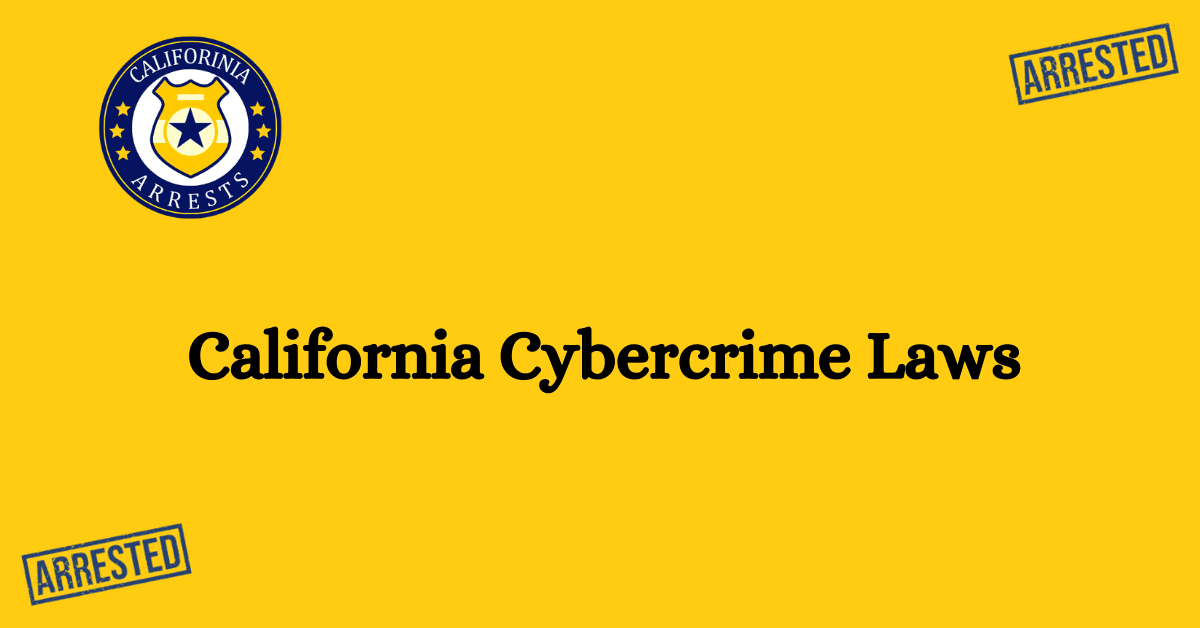California Cybercrime Laws
California Cybercrime Laws are designed to protect individuals, businesses, and organizations from the growing threat of cybercrime. In today’s digital world, where technology is an integral part of our daily lives, it is crucial to be aware of the laws that govern online activities and safeguard our sensitive information.
These laws address a wide range of cybercrimes, including hacking, identity theft, phishing, and online fraud. They provide a legal framework to hold perpetrators accountable and ensure that justice is served. By understanding these laws, individuals can take proactive measures to protect themselves and their digital assets, while businesses can implement robust cybersecurity measures to safeguard their customers’ data.
Types of Cybercrimes
Understanding the different types of cybercrimes is essential in combating the ever-evolving threats lurking in the digital world. By familiarizing ourselves with these offenses, we can better protect ourselves and our online activities.
Hacking
Hacking is one of the most prevalent forms of cybercrime. It involves unauthorized access to computer systems or networks, often with malicious intent. Hackers exploit vulnerabilities in security systems to gain access to sensitive information or disrupt operations.
Identity Theft
Identity theft occurs when someone uses another person’s personal information, such as their name, Social Security number, or financial details, without their consent. Cybercriminals engage in various tactics, like phishing emails or fake websites, to trick individuals into revealing their confidential data.
Phishing
Phishing is a deceptive practice where cybercriminals pose as legitimate entities, such as banks or government agencies, to trick individuals into divulging sensitive information or clicking on malicious links. These fraudulent emails or websites often appear genuine, making it challenging to detect the scam.
Online Fraud
Online fraud involves deceptive practices aimed at obtaining financial or personal gain. This can include scams, fake online marketplaces, or fraudulent investment schemes. Cybercriminals exploit unsuspecting individuals, often preying on their trust and naivety.
Legal Framework for Cybercrime
California Cybercrime Laws provide a solid legal foundation to combat these malicious activities and protect individuals, businesses, and organizations. By having strict regulations in place, perpetrators can be held accountable, and justice can be served.
Ensuring Accountability
These laws empower law enforcement agencies to investigate and prosecute cybercriminals, ensuring they are held accountable for their actions. By actively enforcing these regulations, authorities can deter potential offenders and maintain a safer online environment.
Protecting Sensitive Information
California Cybercrime Laws also focus on safeguarding sensitive information. They require businesses and organizations to implement robust cybersecurity measures to protect their customers’ data from unauthorized access or breaches. Compliance with these laws is crucial for maintaining trust and confidence in online transactions.
Empowering Individuals
By understanding these laws, individuals can take proactive measures to protect themselves and their digital assets. Being aware of their rights and responsibilities can help individuals navigate the digital landscape with confidence and reduce their vulnerability to cybercrimes.
In conclusion, California Cybercrime Laws play a vital role in addressing the growing threat of cybercrimes. By comprehending the different types of cybercrimes and the legal framework in place, individuals and businesses can actively protect themselves and contribute to a safer online environment.
FAQs
What are California Cybercrime Laws?
California Cybercrime Laws refer to the legal statutes and regulations that govern cybercrimes committed within the state of California. These laws aim to prevent, investigate, and prosecute various types of cybercriminal activities, including hacking, identity theft, computer fraud, and online harassment.
What are the penalties for cybercrimes in California?
The penalties for cybercrimes in California vary depending on the severity and nature of the offense. They can range from fines to imprisonment. For example, hacking into a computer system with the intent to defraud or steal information can result in a felony charge and imprisonment for up to three years.
How does California define cyberstalking?
California defines cyberstalking as the act of using electronic communications to repeatedly harass, annoy, or threaten someone. It can include sending unwanted messages, posting false information, or using social media platforms to intimidate or harm another person. Cyberstalking is considered a crime under California law.
What is the punishment for identity theft in California?
In California, identity theft is a serious offense that can result in both criminal and civil penalties. The punishment for identity theft can include imprisonment, fines, restitution to the victim, and probation. The severity of the punishment depends on factors such as the value of the stolen information and the defendant’s criminal history.
What is the role of law enforcement in enforcing California Cybercrime Laws?
Law enforcement agencies in California play a crucial role in enforcing Cybercrime Laws. They investigate cybercrimes, gather evidence, and work closely with prosecutors to bring offenders to justice. Additionally, these agencies often collaborate with federal authorities and other jurisdictions to combat cybercriminal activities effectively.
How can individuals protect themselves from cybercrimes in California?
To protect themselves from cybercrimes in California, individuals can take several precautions. These include using strong and unique passwords, keeping software and antivirus programs up to date, being cautious of suspicious emails or links, and avoiding sharing personal information online. It is also essential to report any cybercrimes or suspicious activities to law enforcement.







